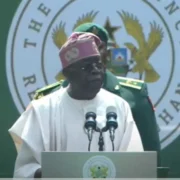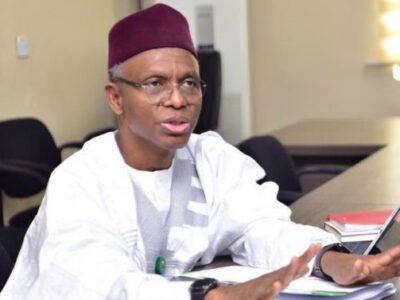Supreme Court Justice Emmanuel Agim has dismissed widespread insinuations that members of the judiciary belong to secret cults, stressing that integrity and godly conscience remain the true foundation of the legal profession.
Justice Agim made the clarification on Friday in Abuja at the Legacy Dialogue 2.0, an annual thought-leadership forum organized by the Johnny Agim SAN (JASAN) Foundation, themed “Institutionalization of Mentorship in the Legal Profession: A Strategic Blueprint for Professional Development.”
Speaking passionately about the moral state of the bar and bench, the justice described as “absurd” the notion that judges operate as members of secret societies.
“I have a conscience. Otherwise, I should not be going to Holy Trinity Parish or even praying if I don’t have a conscience. God is my protection, my fortress and my refuge. You cannot be evil and expect God to be all of that to you,” Agim said.
“People say judges belong to cults. It is not so. We are ordinary human beings.”
He lamented the erosion of professional ethics and intellectual discipline among some modern practitioners, observing that many lawyers prioritize victory over justice and often speak ignorantly about court rulings they have not studied.
“When I was a lawyer, cases were settled by law and you could predict your opponent’s argument. Today, people go to court to win, not to get justice. Some hold judgments in their hands but don’t read them; they go on television to spew ignorance with audacity. It is a shame,” he stated.
Justice Agim, who revealed that he has authored over 600 judgments, argued that a deep understanding of the law is key to ethical conduct.
“If a lawyer knows the law, it is very difficult for him to be unethical. If a judge knows the law, it is very difficult for him to be corrupt. But ignorance is bliss,” he said.
Delivering the keynote address, former Supreme Court Justice Ejembi Eko, represented by Justice Mabel T. Segun-Bello of the Federal High Court, lamented the absence of structured mentorship in the legal profession, warning that the future of law in Nigeria was at risk without proper guidance for younger practitioners.
“We multiplied numbers without multiplying mentors. Any profession that leaves its young ones unguided and unguarded loses its future,” he cautioned, advocating the creation of a National Mentorship Council to coordinate ethics and continuing legal education across the bar and the bench.
President and Founder of the JASAN Foundation, Johnny Agim, SAN, said the Legacy Dialogue series was designed to institutionalize mentorship and sponsorship as pillars of professional reform. He noted that the foundation aims to groom at least 500 exceptional young lawyers over the next decade through its Legacy500 Elite Mentorship Platform and scholarship programs.
“The seed we planted last year has begun to grow. The students we sponsored are now in the Nigerian Law School, and after their Call to Bar, they will join our mentorship network,” Agim announced.
The Attorney General and Commissioner for Justice of Ondo State, Dr. Kayode Ajulo, SAN, who also chairs the Nigerian Bar Association’s Mentorship Committee, called for mentorship to be recognized as a national imperative within the legal community.
“Mentorship is not just a duty; it is a profound responsibility we owe to our future leaders,” Ajulo said. “Success is not measured solely by personal achievement but by the impact we have on others.”
He urged senior lawyers to deliberately invest in the next generation, emphasizing that the survival of the profession depends on restoring discipline, depth, and humility among young practitioners.
“The road ahead may be filled with challenges, but know this: you are not alone. We, your mentors and predecessors, are here to support you and open doors that may seem closed,” Ajulo assured.
The event, held at the Shehu Musa Yar’Adua Centre in Abuja, brought together jurists, senior advocates, academics, and young lawyers to discuss ways to rebuild the culture of mentorship as a lasting framework for excellence and ethical renewal in Nigeria’s legal system



















Comments